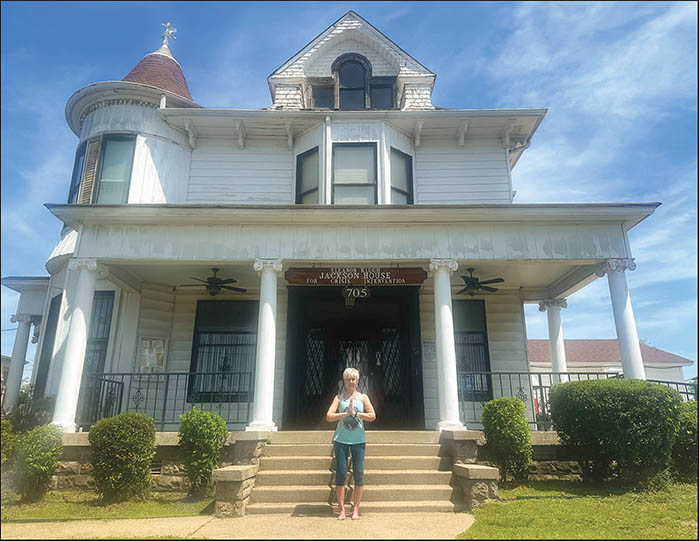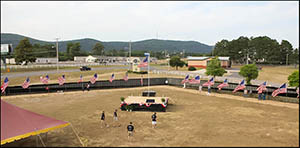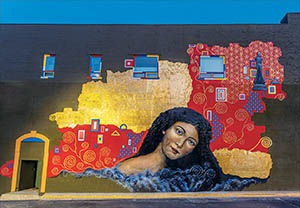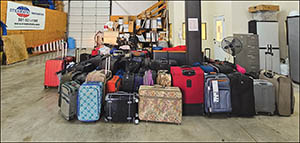By Karen Watson Reeves
When I cue a class into the yoga squat, also known as garland pose, I frequently get raised eyebrows and “you’ve got to be kidding me” looks. I kid you not! Even if you cannot squat this low in this position at this point in your life, your body has done this position before.
Watch any toddler at play and realize this was part of your growing up time also. With practice and perseverance, you can squat again. Why, you ask? The benefits of this pose are many!
But first, why garland? The Sanskrit name for this pose is malasana. “Mala” is translated as garland, and in our yoga tradition garlands play a significant role, whether it is garlands of flowers, leaves or beads.
This squat can be a meditation position (the body folds down in somewhat of a garland shape), and in some cultures not just children, but also adults, work, eat, and read in this pose. The comforts of modern life have made us forget a lot of natural things and squatting is one of them. So a philosophical benefit is that garland pose fosters a connection to our tradition.
Because of our sedentary lifestyles, our lower body areas like the groin and deep inner thighs become stiff and tight. Compared to standing, sitting leads to 40-90% more stress on the back and a flattening of the lumbar spine. Malasana helps ease the hips open and increase mobility in the hips, legs, and back. Additionally, squatting stretches the ankles and lower hamstrings and strengthens the quadriceps, hamstrings, gluteal muscles, calf muscles, core and the lower back. It’s also a great prenatal pose for obvious reasons.
A lesser known name for this position is “relieving pose,” eliminating what no longer serves us. Malasana aids digestion by stimulating the metabolism and digestive organs while toning the muscles in the low abdomen. The calming and grounding effects of this pose help to eliminate negative thoughts and energy from our minds and spirits.
A regular practice of yoga squat or garland pose will help to maintain a straight spine with the shoulders pulled back into their proper position, thus creating better overall posture.
You may begin to notice that instead of hunching down, you focus more often on less slouching. The next time you see a toddler playing, why not join him or her in that squat and enjoy the primary benefit: it just feels so good!
Karen Watson Reeves was born and raised in Mount Holly and has called Hot Springs home since 2006. She became a registered yoga teacher in 2011 and has travelled Arkansas teaching her passion. She owns The Yoga Place, is on the Hot Springs YMCA teaching staff, is an adjunct instructor at National Park College, as well as teaching in several other fabulous venues. When not on the mat, Karen enjoys the beautiful outdoors of the National Park, especially from her bicycle.











